The First GlobalSurg Randomised Controlled Trial
Since 2013 GlobalSurg has run two observational studies in abdominal surgery, involving 25,000 patients from over a hundred countries. This has provided vital baseline data to allow us to begin to planning the first GlobalSurg randomised controlled trial (RCT) targeting reduction of surgical site infection (SSI) following abdominal surgery.
At the beginning of this month 60 medical professionals from the GlobalSurg family gathered in Birmingham, UK, for a two day planning conference aiming to design this world first trial.
Amongst the group were 25 surgeons from 17 countries including Benin, Egypt, Ghana, Guatemala, India, Mexico, Nigeria, Pakistan, Peru, Philippines, Rwanda and South Africa.
Planning involved lively discussion and small group work, including focus on the heterogeneity of the network. Philip Alexander, working in a fifty-bed hospital in the foothills of the Indian Himalayas, spoke of the practical difficulties of a trial participant returning for a follow-up appointment in winter when roads could be impassable. In Rwanda, many patients would be unable to pay the transport costs to return to hospital. Innovative methods such as using smartphones to send pictures of wounds or outreach visits to the patient’s home were discussed to maximise follow-up within a trial.
By the end of the meeting there was group consensus that the best interventions to test are 2% alcoholic chlorhexidine skin preparation and a clean set of wound closure instruments.
Putting surgery on the public health agenda at a national and international level is my passion. In the 1980s HIV gained international coverage and as a result great progress was made. I want to see the same happen with the application of surgery for trauma victims, as well as in cancer treatment and oncology so that we can improve outcomes for patients.
Why target SSI for our first trial?
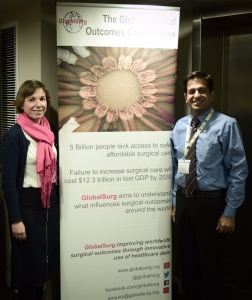
Data collected during our GlobalSurg 1 and GlobalSurg 2 observation studies indicated that SSI is twice as common in low and middel income countries (LMICs) compared to high income settings.
SSI have a huge impact on patients, leading to longer stays in hospitals, increased costs to patients, and preventing early return to work. Loss of income combined with medical and transport costs add to the economic burden on patients and their families. For a patient living in a remote village in South Africa, miles from the nearest hospital, a post-surgery infection could be fatal.
Patient and public involvement
During the meeting we heard Whilst patient involvement in the planning and conducting of clinical trials is common practice in the UK, it is rare in LMICs. During the meeting we heard from patient representatives from both the UK and Rwnda, enabling differing experiences across the globe to be shared and compared.
Azmina Verjee, patient representative from the Association of Coloproctology of Great Britain, gave an inspiring first hand account of how devastating SSI can be for patients and how valuable the patient perspective can be to the planning and success of clinical trials.
Patients in Rwanda will be happy to help with research that will help improve hospital care. At home, our patients often have long and difficult journeys to the hospital, and for people to come back if they are sick because of infections is a serious issue that means they will have to rely on the help of others to return for treatment.
Future Plans
The significance of GlobalSurg’s future randomised controlled trial extends beyond its measurable outcomes. The study will create new research leaders in countries where they are currently lacking.
We are aiming to submit a funding application in 2017 to support a major randomised trial. We are still open to new collaborator surgeons from low and middle income settings so please get in touch via our contact form
The meeting was supported by a UK based MRC-Wellcome-DFID Joint Trials Development grant. Additional funding was supplied by CareFusion, 3M, Birmingham City Council, and Queen Elizabeth Hospital Birmingham Charity


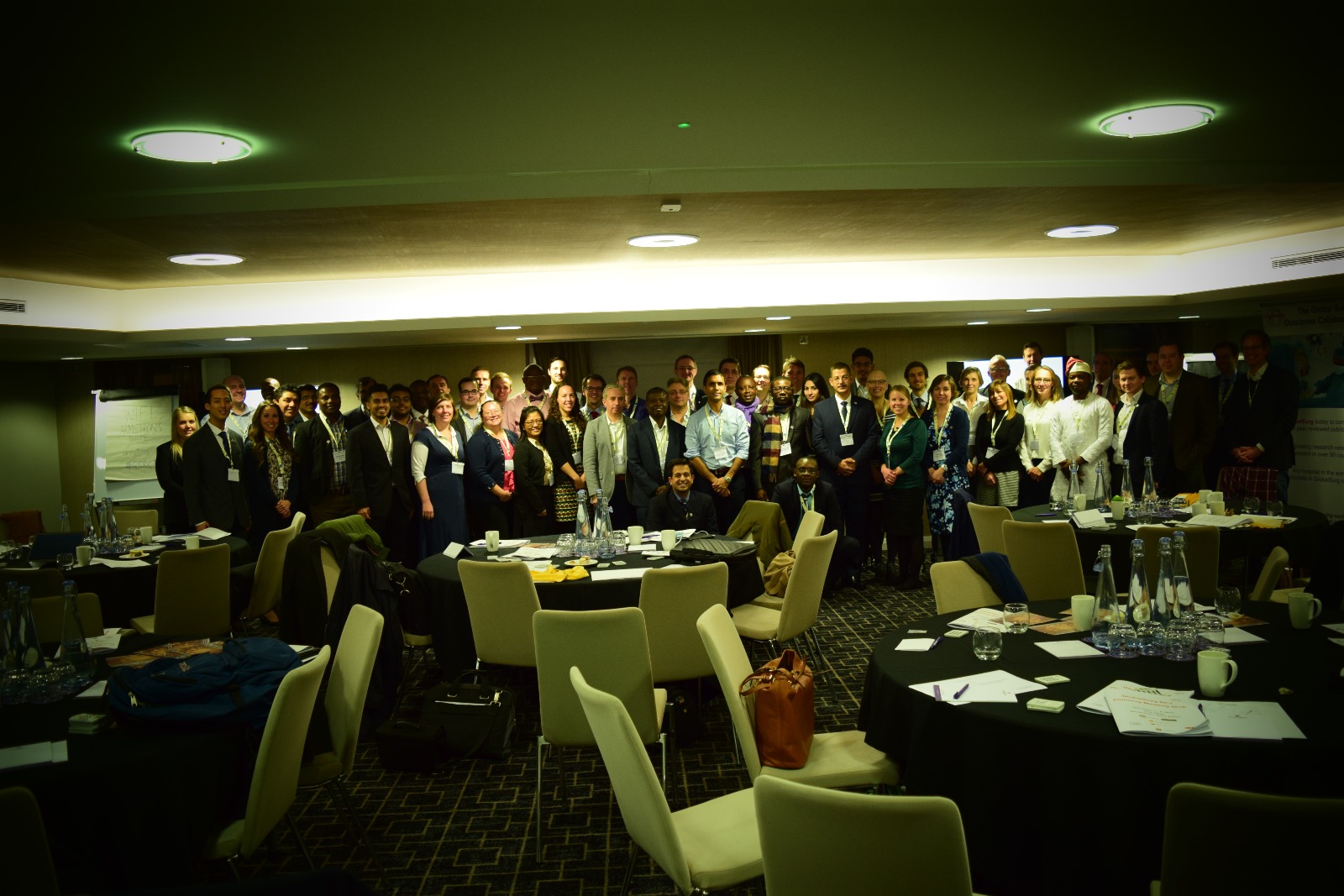
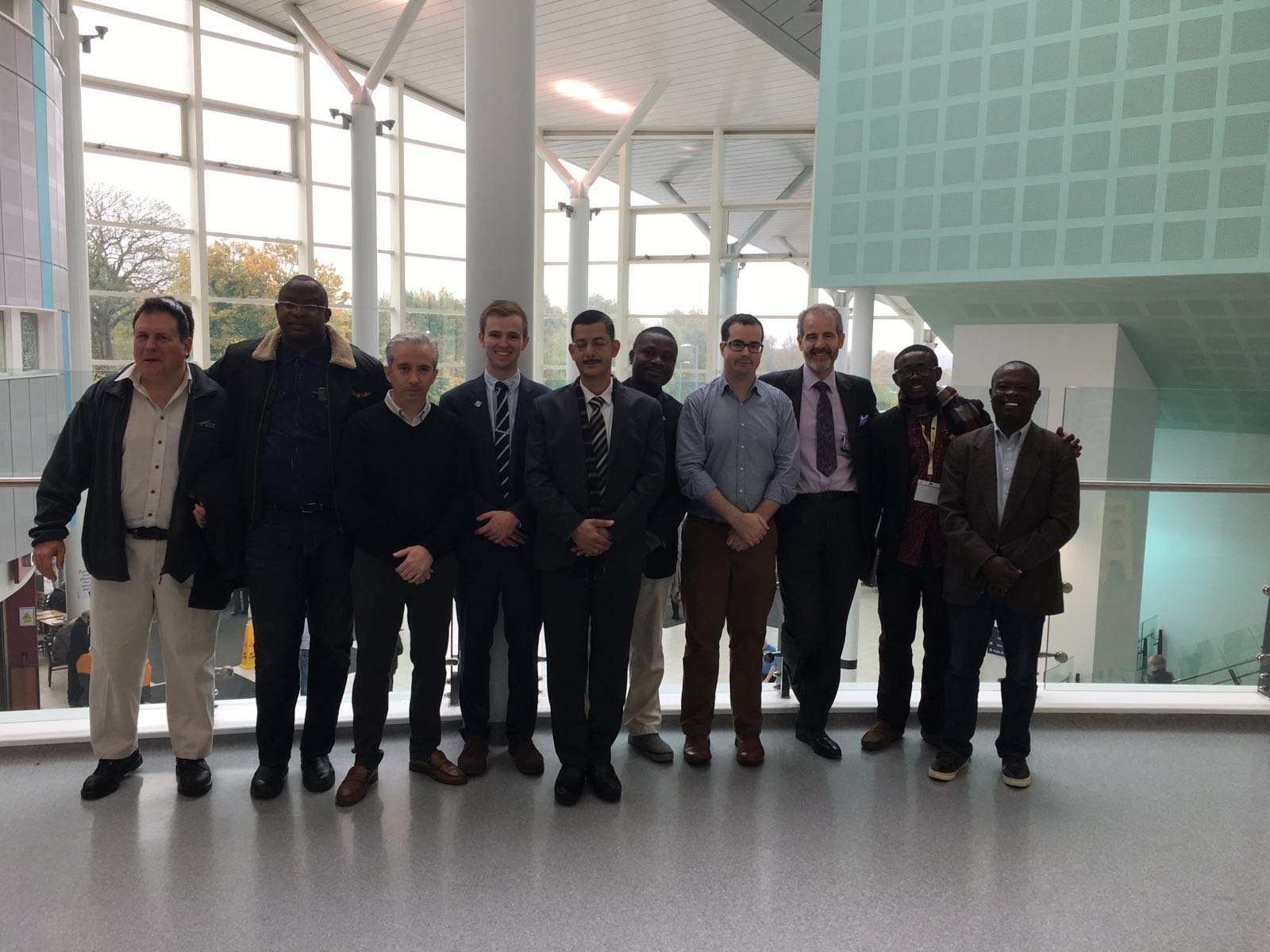
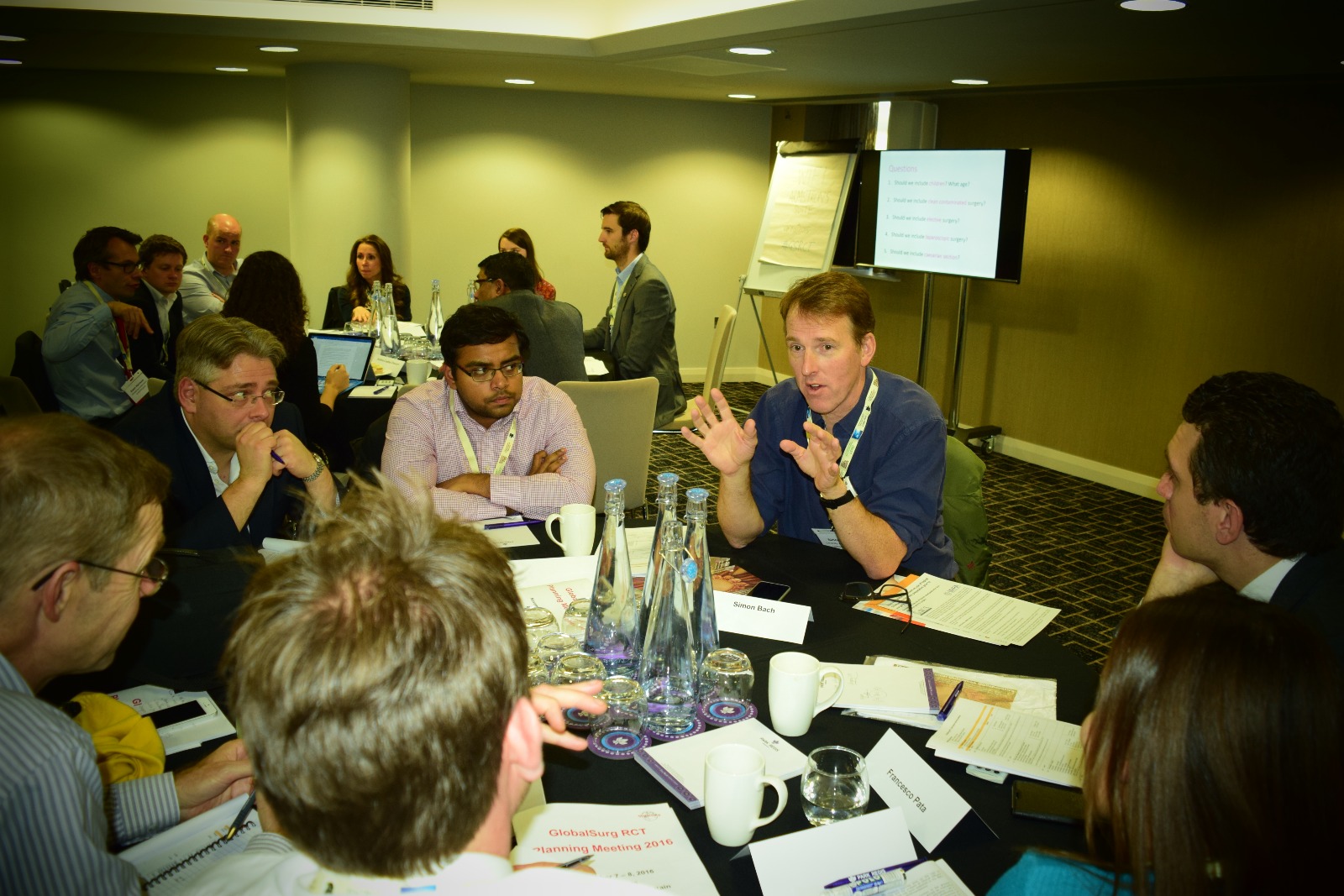

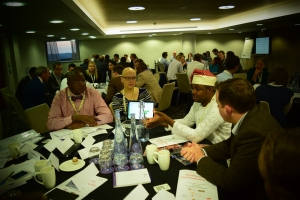
Leave A Comment